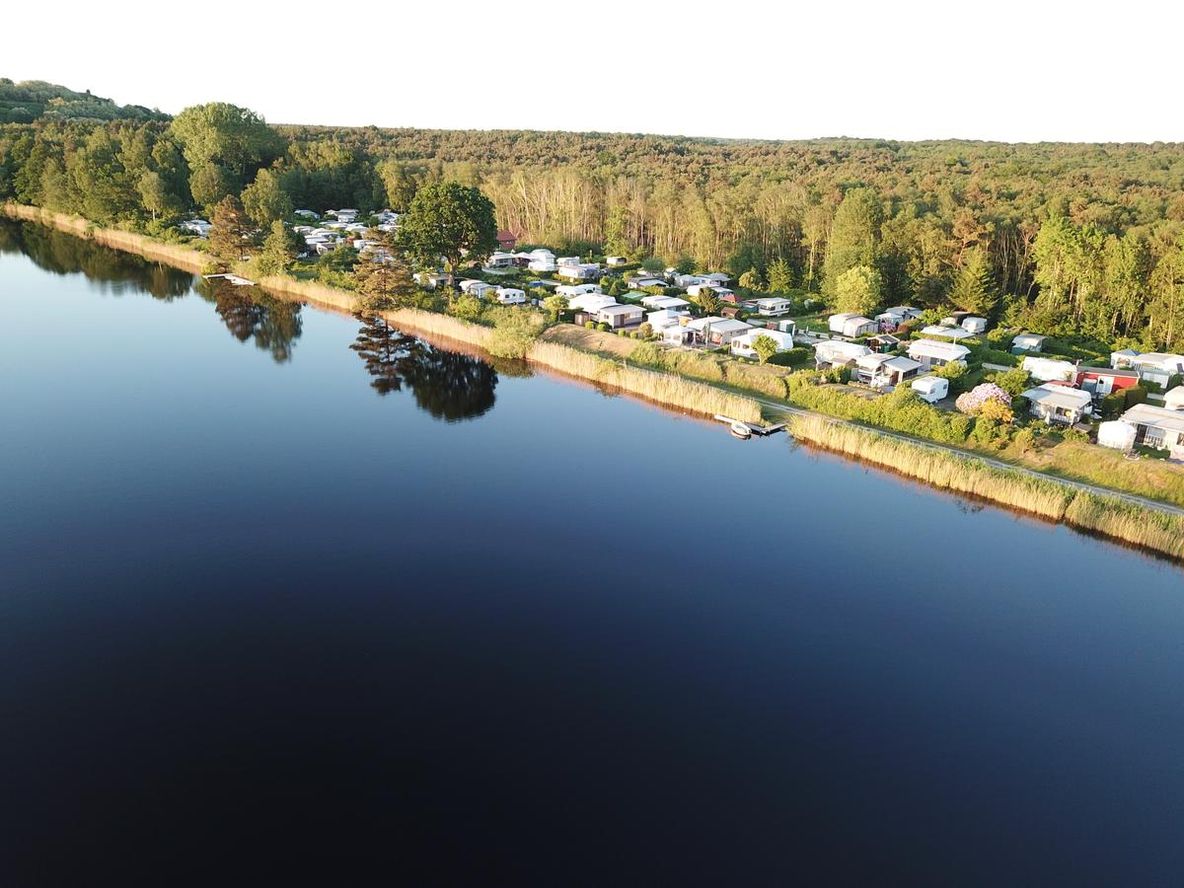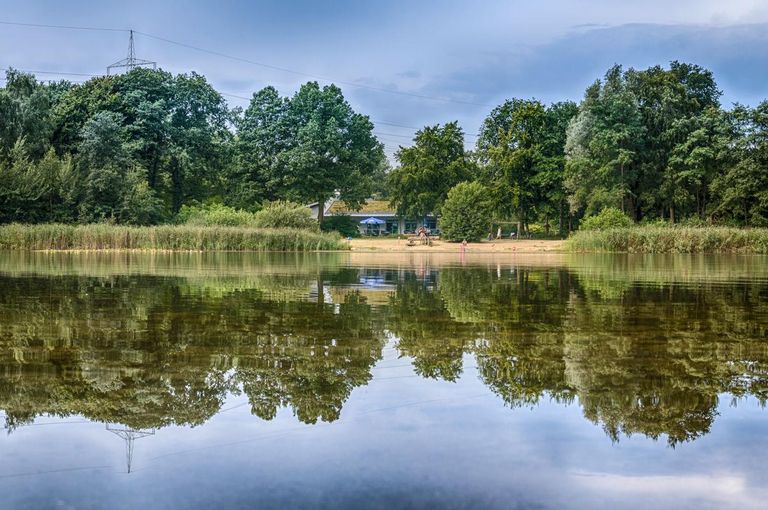
Naturisten FamilienSport- und NaturCamp Sonnensee, Lower Saxony, Germany
1. Try to choose a suitable eco-friendly campervan
By using price comparison websites such as CamperDays you can check out many different campervans and compare, for example, the fuel consumption per 100 kilometers. A lower fuel consumption is beneficial both for your travel budget and for the environment. In general, larger RVs need more fuel than smaller campers and older vehicles are usually less eco-friendly than newer motorhomes.
If you want to buy your own motorhome, you should take your time finding out about the exact fuel consumption. If you want to invest in sustainability when traveling a lot, purchasing a solar system may be best for you.
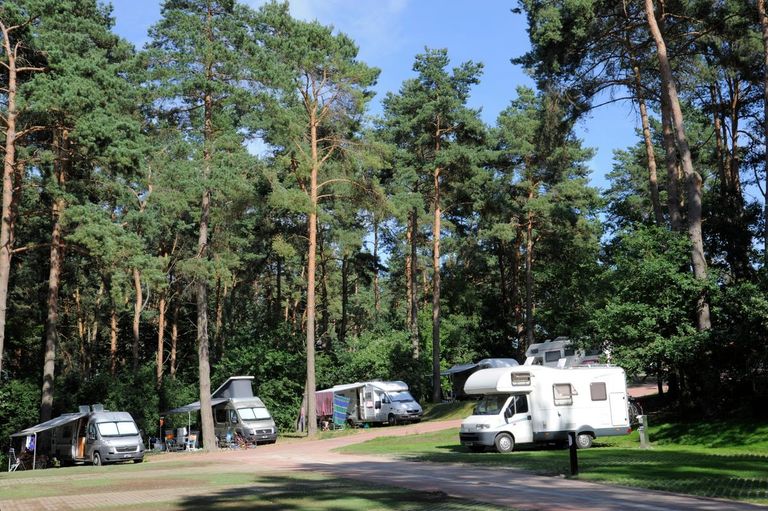
Camping- und Ferienpark Havelberge, Mecklenburg-Western Pomerania, Germany
2. Avoid garbage when camping
There is an unspoken law among camping fans all over the world: Always leave every spot the way you found it. So always take your trash with you and dispose of it correctly. When buying groceries, it’s best to choose as few packaged products as possible to avoid plastic garbage.
Use jute bags instead of plastic ones when buying groceries. If you do use plastic bags make sure to reuse empty ones. For example, a plastic bag can also be used as a trash bag. You can easily avoid to-go products when going camping, because many of the rental campers are usually well equipped with cups, cutlery and much more. Also, store your food in small storage tins to avoid aluminum foil and plastic bags.
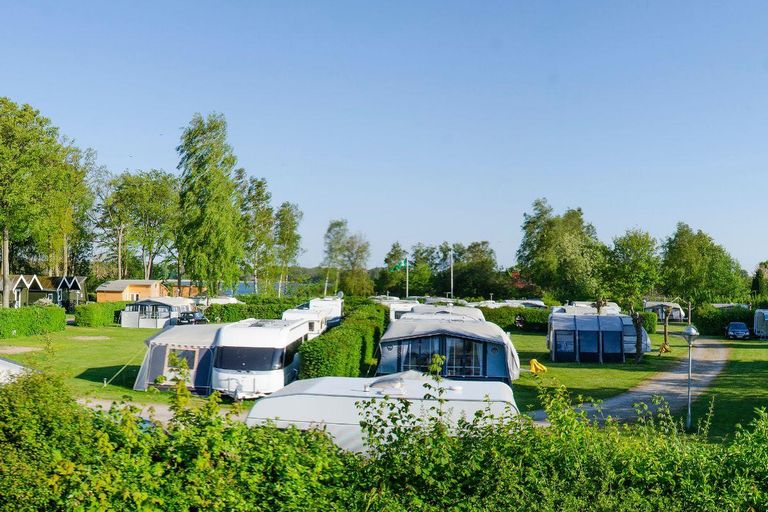
Nysted Strand Camping, Zealand, Denmark
3. Use heater and air conditioning wisely
Depending on your travel destination and season, a heater or an air conditioner is important. But both of them are not very eco-friendly. We have a tip for you: Think about turning the air conditioner off and rolling down the windows while driving. Same goes for the heater. During mild nights, a blanket might be all you need to get warm and cozy.
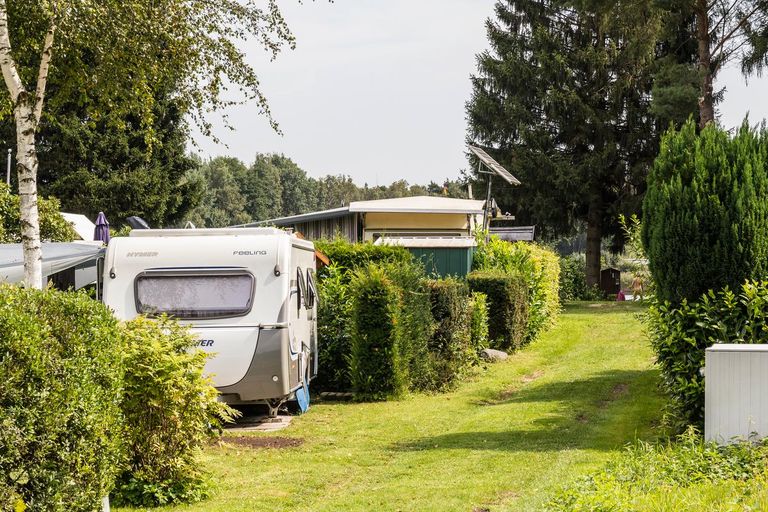
Naturisten FamilienSport- und NaturCamp Sonnensee, Lower Saxony, Germany
4. Drive your motorhome in a fuel-efficient way
You will save fuel and produce less CO2 by driving more slowly. A speed of about 100 km/h is perfect to see a lot of your travel destination without using too much gas. By the way: Unnecessary overtaking maneuvers and braking are also not very eco-friendly.
You can also save fuel when it comes to loading the motorhome with your luggage and camping equipment. Too much weight will result in a higher gas consumption. Our tip: Check your packing list again and leave unnecessary stuff at home. You can also save some weight by filling the fresh water tank correctly. Don’t fill it up to the maximum. Better wait until you reach the next campsite to fill the tank for the night.
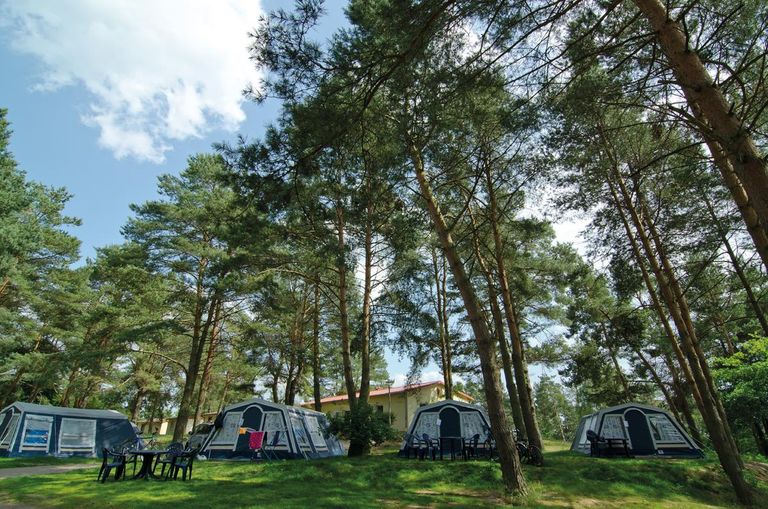
Camping- und Ferienpark Havelberge, Mecklenburg-Western Pomerania, Germany
5. Refill gas cartridges instead of buying new ones
Did you know that you can fill up gas cartridges at gas stations or campsites instead of getting new ones? It will save you a lot of waste when you don’t use disposable cartridges any longer. When booking a motorhome via CamperDays many vehicles have refillable gas cartridges on board.
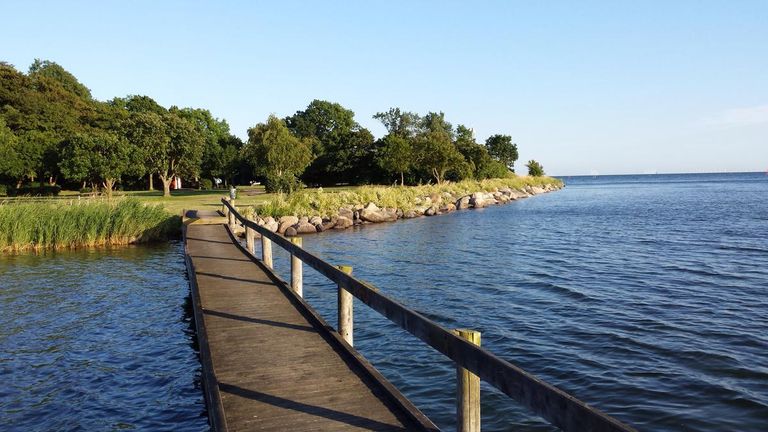
Nysted Strand Camping, Zealand, Denmark
6. Use environmental-friendly products without harmful substances
Many peelings and shower gels include small plastic particles (called microplastics), which are harmful to nature and animals. Luckily, natural cosmetics are getting more and more popular, which is very good for the environment. When buying cosmetics like sunscreen, always take a look at the ingredients and make sure to buy environmentally friendly products. The same goes for cleaning products, such as dishwasher gel. You can find some chemical-free alternatives if you’re looking for them.
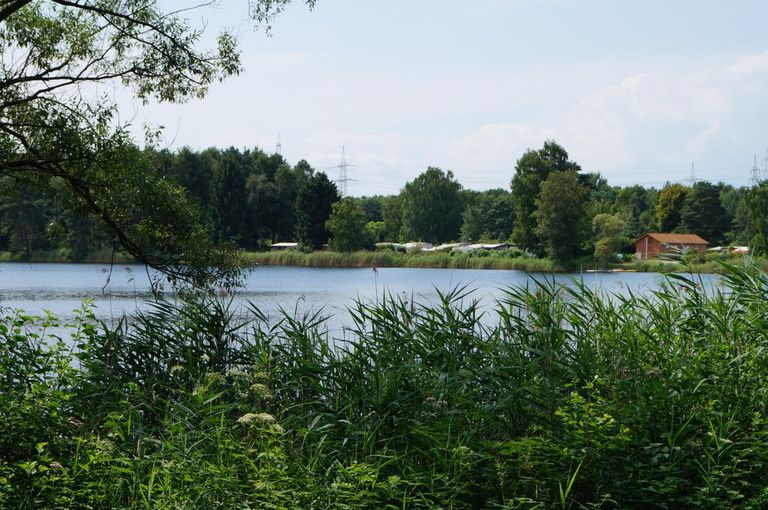
Naturisten FamilienSport- und NaturCamp Sonnensee, Lower Saxony, Germany
7. Buy used equipment instead of new stuff – or rent it
Camping equipment, such as chairs and tables, is very important when going on vacation. Try to buy high-quality products that will last for many years, for example wooden or stainless-steel camping utensils. Another option is to share larger items with family members and friends, who are also camping enthusiasts. Last but not least: You can also buy camping equipment second hand.
Good to know: Many rental companies offer camping equipment such as bed linen or bicycle carriers. You can book these additional services when choosing a camper online.
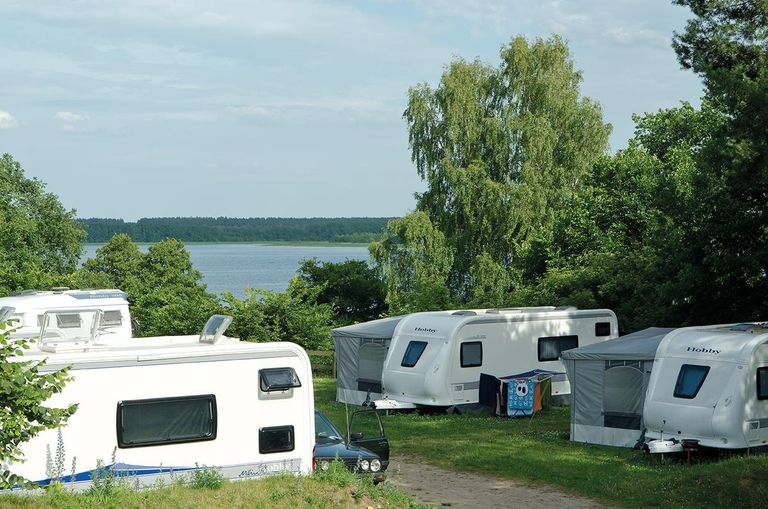
Camping- und Ferienpark Havelberge, Mecklenburg-Western Pomerania, Germany
8. Search for official eco-campsites
A campsite can be environmentally conscious in different ways. Many eco-campsites for example make sure they use their energy efficiently and choose renewable energy sources. They also try to use water sparingly, avoid waste and offer nature-friendly cleaning products.
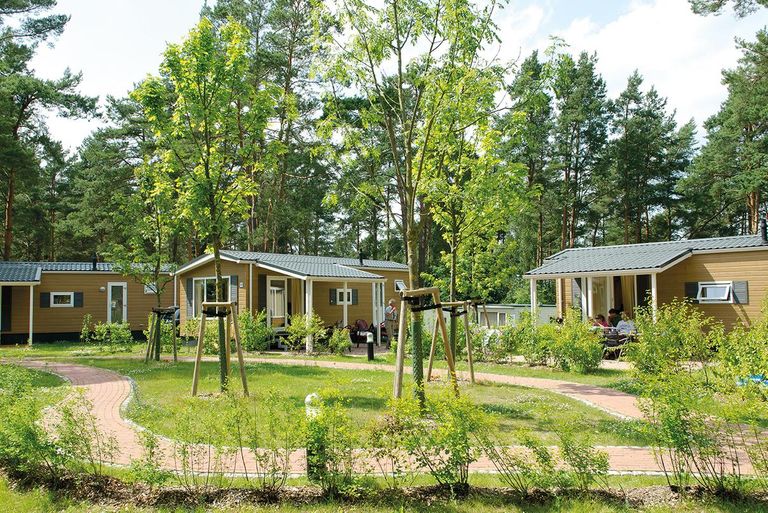
Camping- und Ferienpark Havelberge, Mecklenburg-Western Pomerania, Germany
Sounds like a great opportunity to do something good? Then look out for campsites, with official seals. The ECOCAMPING seal in Europe is one good example. A total of 225 campsites in Germany, Austria, Switzerland, Italy, Croatia and Slowenia are ECOCAMPING partners.
See? It is not that hard to travel thoughtful and environmentally friendly. And even if you don’t meet all the criteria: Every little step counts. You can find more tips on sustainable travel here.
We wish you a nice and eco-friendly trip! Find and book your next camping destination now on camping.info.

